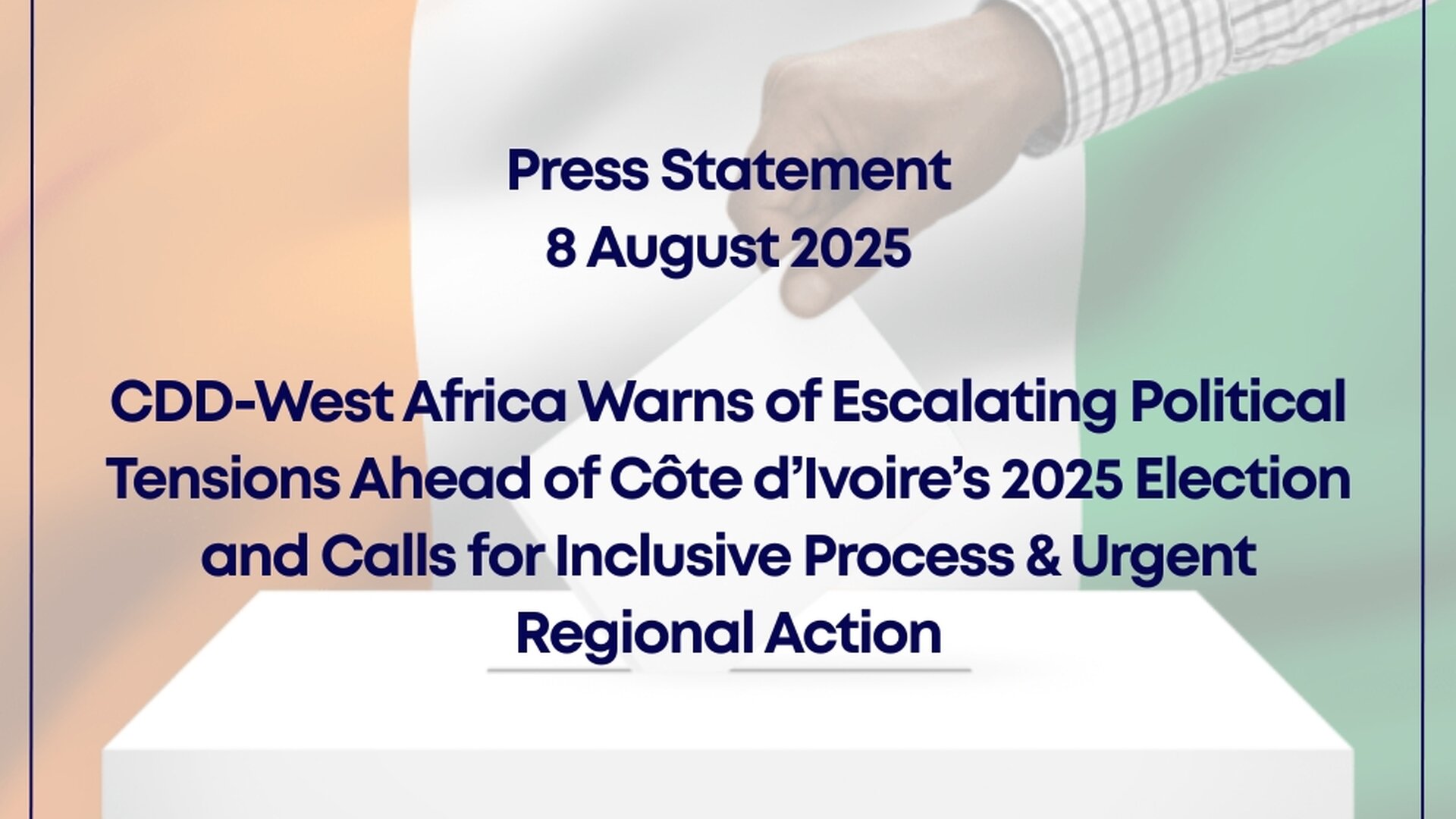
CDD-West Africa Warns of Escalating Political Tensions Ahead of Côte d’Ivoire’s 2025 Election and Calls for Inclusive Process & Urgent Regional Action
(Abuja, Nigeria) The Centre for Democracy and Development (CDD-West Africa) expresses deep concern over the deteriorating political climate in Côte d’Ivoire ahead of the country’s October 2025 presidential election.
A new CDD-West Africa briefing paper, Old Elites, New Fears, lays bare the troubling signs of another electoral crisis in the making in the country. The recent announcement of President Alassane Ouattara’s decision to run for a fourth term only reinforces the urgent need for vigilance and reforms. While this move may be legally justified under the 2016 constitutional reset, it nevertheless raises serious questions about democratic norms, political accountability, and the future of electoral legitimacy in the country.
Despite a decade of economic growth, Côte d’Ivoire’s democracy remains fragile. The exclusion of major opposition candidates – Laurent Gbagbo, Charles Blé Goudé, Tidjane Thiam, and Guillaume Soro, from the 2025 race is seen by many as a return to the politics of selective legality and exclusion. The result is a political field dominated by familiar elites and marked by deepening mistrust in key institutions of government connected with the exercise, including the judiciary, and electoral commission.
The situation is likely to further complicate Côte d’Ivoire’s diplomatic isolation with the Economic Community of West African States (EDOWAS), already strained by relations with Burkina Faso, Mali, and Niger that now form the Alliance of Sahel States (AES). Once a champion of regional integration, Côte d’Ivoire is now viewed with suspicion by neighbours who see its leadership as aligned with external agendas. This erosion of trust threatens cross-border trade, regional security cooperation, and social cohesion, especially as xenophobic rhetoric resurfaces in its national discourses.
The Ivorian public, especially the youth, are watching history repeat itself. Instead of renewal, they see the recycling of old rivalries, the marginalization of new voices, and a political culture that is increasingly defined by survival, not service.
It is against the backdrop of the foregoing that CDD-West Africa makes the following urgent calls for action:
- To Ivorian authorities: Uphold the integrity of the electoral process, ensure institutional independence, and commit to inclusive participation, not exclusionary rule.
- To opposition leaders: Avoid inflammatory rhetoric and commit to peaceful engagement and constructive dialogue.
- To ECOWAS and the African Union: Act now before the window for preventive diplomacy closes. Silence is no longer an option in the face of creeping authoritarianism.
- To civil society and the media: Stay vigilant, amplify public concerns, and defend democratic space.
- To the international community: Support impartial observation, demand transparency, and encourage regional mediation efforts.
Côte d’Ivoire cannot afford another post-election crisis. The memory of 2010 remains vivid. To avoid a repeat of 2010, all actors–local and international, must work together to safeguard democracy, protect peace, and prioritize the will of the Ivorian people.
Now is the time to act. The cost of inaction is too high to ignore.
SIGNED
Dauda Garuba, PhD.
Director
Centre for Democracy and Development (CDD-West Africa)
